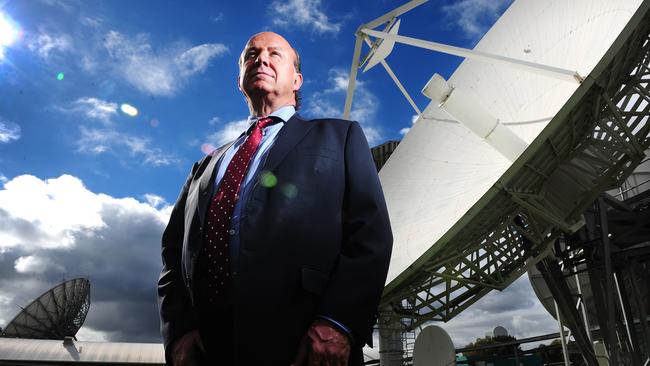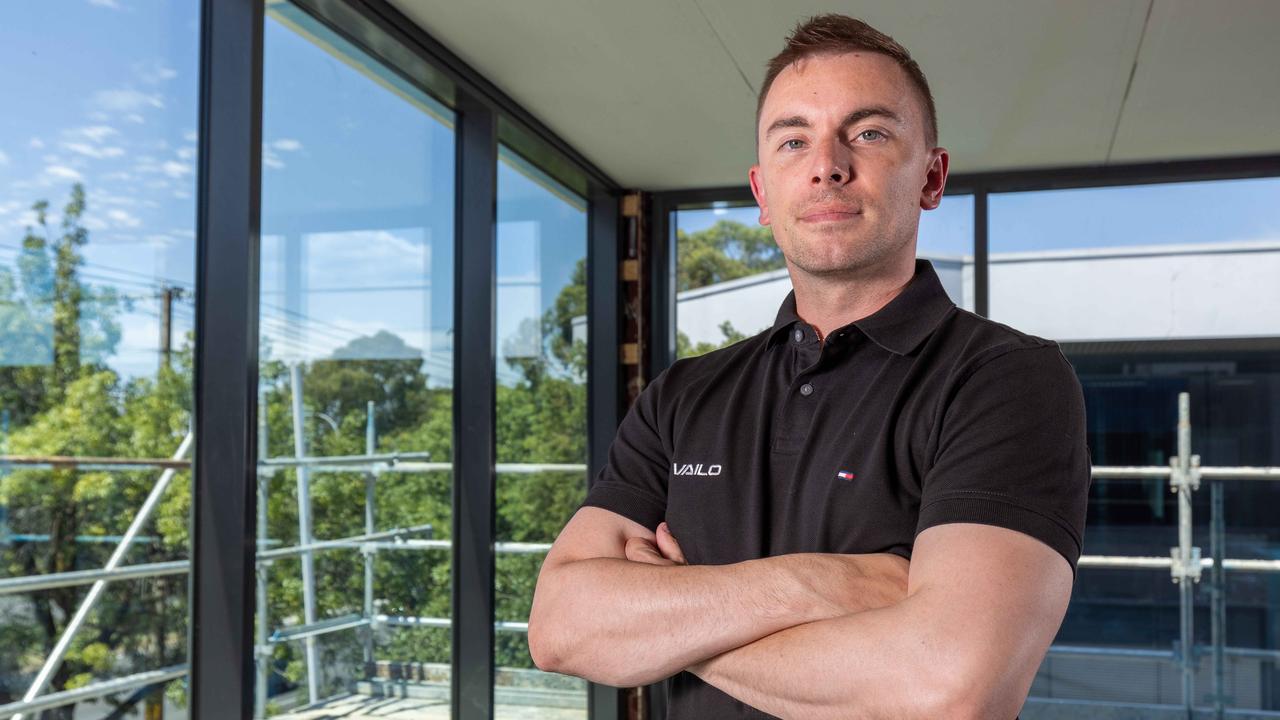
Australia is now planning a return to the space industry, but a decade ago an Australian company, at the urging of the US military, raised more than $US600m to launch the first of a series of communication satellites which would have made the nation a leading force in satellite communication.
The biggest funders were international banks, but after advancing $US200m, and with a satellite almost built and ready to launch, in 2015 they suddenly withdrew support and the Australian company went into liquidation.
One of the biggest equity investors was a young Singapore entrepreneur Ching Chiat Kwong. In 2013 he subscribed around $US60m to gain a 30 per cent stake in the Australian company, NewSat. Inspired by Ching’s judgment, his friends and business colleagues also invested.
Ching became a director 2013 and was so dismayed in 2015 when he saw the banks withdrawing that he injected another $10m in a desperate attempt to convince the banks to continue with their loan commitments. The banks remained resolute so Ching’s late investment plus all the earlier money he and his friends has staked was lost.
Shattered and with bruised finances, Ching dedicated himself to building a global property empire. He is now a billionaire but he never forgot the NewSat events of 2015. He can now afford to undertake what will be one of Australia’s biggest damages action – a $5bn writ against the global banks/credit insurers who pulled the plug on NewSat. He has already spent $3m on lead-up hearings. The case finally goes before the Supreme Court of Victoria in July. Ching is funding NewSat’s liquidator, Glenn Livingstone of WLP Restructuring, to engage international litigation experts Quinn Emanuel and King’s Counsel Philip Crutchfield and Martin Scott.
Ching has pledged at least another $20m. If he wins now worthless NewSat shares will be very valuable.

The story of NewSat is one of the more remarkable in Australian corporate history. It was originally known as SportsView and owned by TV personality and former Collingwood president Eddie McGuire and Adrian Ballintine. The McGuire-Ballintine company secured the internet rights to most AFL clubs. It was a brilliant concept but way ahead of its time.
Later under Ballintine’s control SportsView became NewSat and acquired teleport operations in Adelaide and Perth to provide telecommunications services based on satellites owned by others. NewSat teleport services were used by almost 100 customers, led by mining companies, and its greatest prize, US military operations in Afghanistan (the Australian military, unlike the US, thought it better to develop communication systems with China rather than our local company).
The US gave Australia’s NewSat a high rating and encouraged the company to launch its own satellites rather than rely on others. Raising the money required seemed an impossible task but the reputation NewSat had developed both in Afghanistan and with other customers, plus the behind-the-scenes work between 2011 and 2013 by the then US ambassador Kim Beazley and former Prime Minister Bob Hawke enabled Ballintine to sign up $US627m in pre-satellite launch contracts and raise the $US640m required to fund the satellite.
It would be built by America’s Lockheed Martin and launched by France’s Arianespace.
Because of the US and French involvement, the US export bank EXIM provided a $US300m credit line, and French credit insurer COFACE, working with a consortium of international banks including Societe Generale, Standard Chartered Bank and Credit Suisse, provided around $US90m. The balance of the money was raised via equity with some mezzanine debt.
When bank finance was withdrawn in 2015 around half the total loan commitments had been advanced and spent, including a $US60m deposit to rocket launcher Arianespace. The French could not launch the rocket because Lockheed had not completed construction but the deposit was not refundable.
These loan agreements were, of course, complex documents and the court will determine whether the banks and the credit insurer had the power to and justification for withdrawing the outstanding advance balances which sent NewSat to the wall.
Given the size of the loans and the high standing of the banks and credit insurer, this case will set local and global precedents.
The court will determine the actual facts but some is on the public record. It is not easy for an entrepreneur like Adrian Ballintine to convert a minnow into a major global satellite communication enterprise, although his chairman Richard Green was a former deputy chairman of the ASX.
In 2014 Lockheed Martin suspended construction for a short time. There were issues in communication and governance. These were resolved and construction continued but there were differences of opinion on the board on how to implement a report on how to improve governance of the company. In a split board vote a group was chosen to do further work. There were alleged spending inconsistencies involving the CEO. In normal circumstances a board on receiving such a report would decide whether to change the CEO and/or change the way the company operates. But before report was properly received by the board it was sent to the lenders and then leaked to the former Fairfax press which portrayed a number of inconsistencies as a major corporate scandal. The courts will determine to what extent the banks and the credit insurer decided to withdraw on the basis of this report and whether this was justified.
The damages claim of around $US5bn was partly based on the potential for a substantial increase in the number of communications over and above the initial contract base. And NewSat had global approval for more satellite spaces. Again the court will determine to what extent this additional capacity should be taken into account in any damages. Certainly the enormous profit potential of this satellite and future satellites was what induced Ching and his partners to invest so heavily.
For Australia it is a tragedy the satellites were not launched because we would now have a far more secure telecommunications system. We have to hope the Australian military now realise that it is locals they need to rely on.




